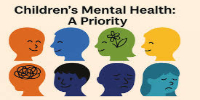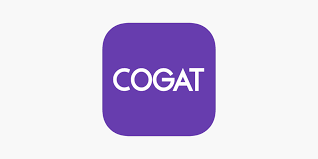Chandler
Creative Writing
Unlocking Imagination: The Best Brains “Aspiring Authors” Creative Writing Program
In today’s fast-paced world of screens, standardized tests, and deadlines, it’s more important than ever for kids to have a space where creativity, imagination, and self-expression are not just encouraged, but celebrated. That’s precisely the role played by Best Brains’ Creative Writing Program, also known as Aspiring Authors. Here’s a deeper look at what it is, who it’s for, why it matters, and how it works.
What Is “Aspiring Authors”?
“Aspiring Authors” is Best Brains’ signature creative writing program designed for students in grades 1 through 8. Rather than focusing solely on grammar drills or formulaic writing, the program aims to nurture storytellers—kids who can craft narrative, explore genre, and find their unique voice on the page.
At its core, the program is structured in 6-week modules. Every new student begins with a Foundations Module, which introduces the basics of narrative writing: character, plot, pacing, brainstorming, descriptive language, dialogue, and structure (like the three-act structure). Once students master the foundation, they can move on to genre-based modules such as Mystery, Fantasy, Science Fiction, Superhero Comics, and more.
Who the Program Is For
-
Age/Grade Range: Grades 1-8 (elementary to middle school).
-
Kids Interested In: Not just those who love writing already, but any child who enjoys stories, likes imagining “what if…?”, or who might benefit from expressing thoughts through writing. Some may attend because they want to improve school writing; others simply because they enjoy creative play.
-
Skill Levels: Because of the modular design, students from beginners to more advanced writers can get something meaningful out of it. The Foundations module ensures a solid base; genre modules allow for specialization and exploration.
What Students Learn / Skills Developed
Here are some of the specific writing and thinking skills the program builds:
-
Narrative Structure & Plotting: How to plan a story (introduction, rising action, climax, resolution), pacing, twists, tension.
-
Character Development: Crafting believable, engaging characters with personality, challenges, growth.
-
Dialogue & Voice: Writing realistic speech, distinguishing characters’ voices; discovering one’s own writing voice.
-
Descriptive / Figurative Language: Using imagery, metaphors, sensory details to bring scenes to life.
-
Genre Awareness & Flexibility: Exploring different genres (fantasy, mystery, comics) so writers can see how storytelling conventions vary.
-
Brainstorming & Idea Development: Learning to generate ideas, plan story arcs, overcome blank-page anxiety.
-
Revision / Editing Skills: Learning that first drafts don’t have to be perfect, and that editing enhances the writing. Peer and teacher review are part of this.
Why It Matters
"The Benefits"
Here are some of the main reasons this kind of program makes a difference:
-
Boosts Confidence & Self-Expression: Children gain confidence when they see their ideas and stories taken seriously, shared, read. It’s empowering.
-
Expands Vocabulary & Strengthens Grammar: With creative writing, kids test out new words, experiment with sentence structures, and see grammar in action—not just as rules, but tools.
-
Improves Academic Performance: Strong writing skills translate to better performance in school across subjects—essays, reports, tests. The ability to organize thoughts, structure arguments, use descriptive language helps.
-
Encourages Critical Thinking & Creativity: Choosing how to build a plot, developing characters, creating conflict; all require thoughtful decisions. The creative process is an opportunity to think critically.
-
Fosters Lifelong Skills & Habits: Learning to write, revise, and communicate clearly are skills with long-term utility. Also helps develop perseverance (working through drafts) and reflection.
How the Program Works — Experience, Format, & Logistics
-
Modular Design: 6-week learning units allow children to focus deeply on one genre or concept, rather than spreading too thin. Helps in paced, incremental growth.
-
Foundations First: Every student starts with narrative basics before moving into genre-specialized modules. This ensures all writers have a solid foundation.
-
Genre Variety: Mystery, Fantasy, Science Fiction, Superhero Comics, etc., so students can explore and find what styles they enjoy.
-
Teacher Feedback & Peer Review: Students receive critiques, encouragement, and guidance from educators and peers. Helps in learning revision and seeing their own work from other perspectives.
-
End Product / Culmination: In many cases, students write pieces they can publish (e.g. small booklets or illustrated stories), or share in reading events. This gives a real-world sense of purpose.
What Makes Best Brains’ Approach Unique / Strong
-
Non-repetitive curriculum: Lessons and modules avoid becoming stale or overly formulaic; students are always moving into new concepts.
-
Structured yet flexible: The Foundations module gives structure; genre modules give flexibility for students to follow their interests.
-
Holistic development: It’s not just about writing skills, but also reading, thinking, imagination, communication. The program is one part of a broader set of offerings that reinforce each other.
-
Quality instructors & feedback: The teacher’s role is crucial: guiding, encouraging, correcting in ways that build without discouraging.
For Parents: What to Look For & How to Support Your Child
- Check portfolio / work samples: Ask what past students have produced.
-
Look for visible progress: Not just final stories, but easier brainstorming, more confidence, better grammar or structure over time.
-
Encourage reading: Exposure to different stories helps students see styles, expand vocabulary, spark ideas.
-
Let them see YOU reading and writing.
-
Give them time to write and revise: Support the revision process; help your child see that rewriting is part of becoming a better writer.
-
Celebrate their work: Publishing, reading aloud, sharing with family; all boost motivation.
https://share.google/images/87KBcapPtne4pXDZw




